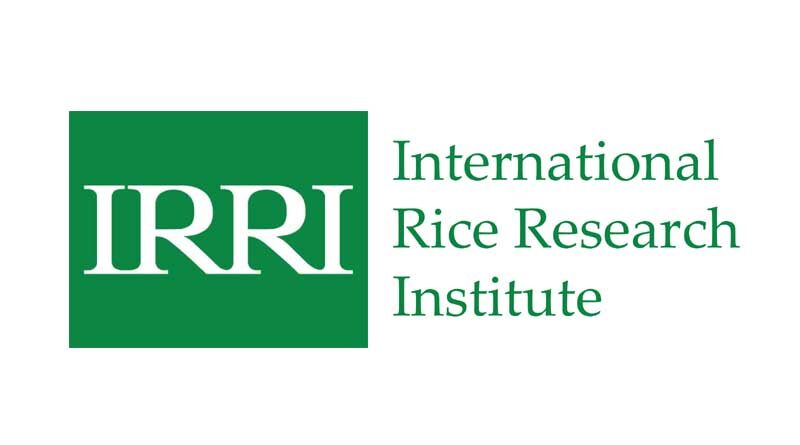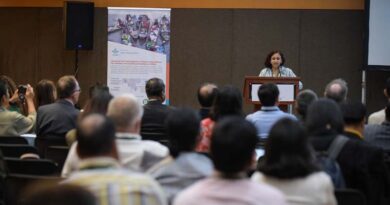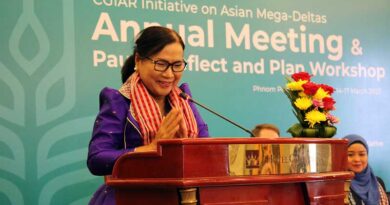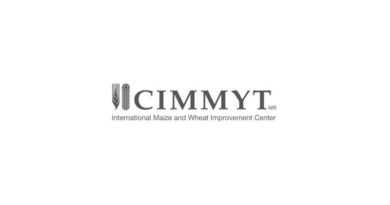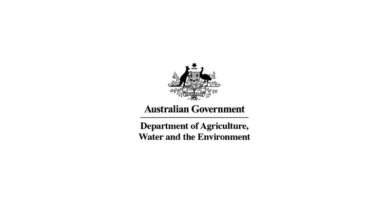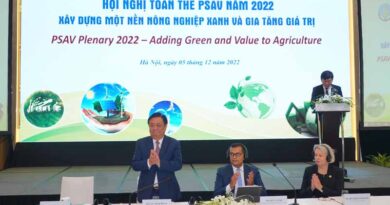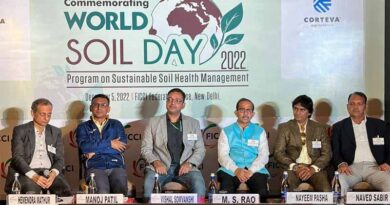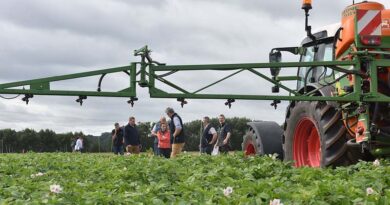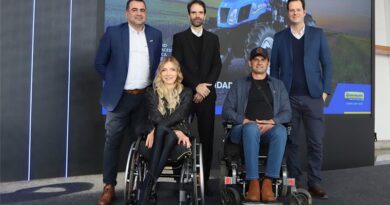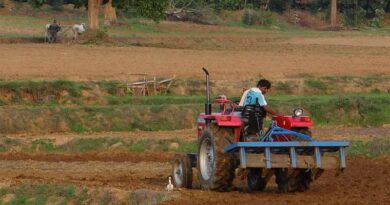Promoting Agricultural Transition in Asian Mega-Deltas
01 December 2022, Asia: To highlight the lessons learned, challenges ahead, and recommendations that could be taken into account for agricultural transformations in the Asian Mega-Deltas, the CGIAR Initiative on Securing the Food Systems of Asian Mega‐Deltas for Climate and Livelihood Resilience (AMD) and Wageningen University & Research (WUR) organized an interactive dialogue event, which is officially part of the Benelux/EIB Pavilion at the Sharm el-Sheikh Climate Change Conference (COP27).
Moderated by Dr. Bjoern Ole Sander, lead of AMD and senior scientist at the International Rice Research Institute, and Dr. Ivo Demmers, head of the Programme Food Security and Valuing Water Program-WUR, the session tackled how inclusive and evidence-based planning can transform ecosystems and lives of farmers in the Asian Mega-Deltas. Using interactive approaches, the session was participated by representatives from the governments, international research organizations, academe, and other related stakeholders.
The deltas are drowning
In her keynote address, Dr. Shakuntala Thilsted, World Food Prize Laureate 2021 and Global Lead for Nutrition and Public Health of WorldFish, emphasized how the Asian Mega-Deltas, particularly Mekong, Irrawaddy, and Ganges-Brahmaputra, serve as food baskets to more than 170M people living in the deltaic nations and also to the countries surrounding these deltas. However, she added that “rising sea levels and increasing soil salinity threaten the agri-food system in the deltas, leading to more hotspots of poverty and food and nutrition insecurity.”
Dr. Shakuntala stressed that inaction or delayed action to address this climate-related issues affecting the deltas will have lasting effects on the present and future generations. “The increase of climate refugees will also change urban migration patterns resulting in more socio-political issues for deltaic nations and even the nations surround them,” she elaborated. Thus, she underscored the importance of deltaic agri-food systems transformation, which is built on the principles of nutrition sensitivity and people-centric approaches, to secure and build resilience for this communities.
Representing the government sector, H.E. Saber Chowdhury, Member of the Parliament of Bangladesh, affirmed that “climate change is an existential threat for us, not just a crisis but a real threat.” He gave his country as an example of how climate-related pressures, such as flooding, decreasing access to fresh water, and sea level rise, can displace 40 Million people in Bangladesh and lose 17% of its land area to climate change. He urged everyone that the transition is one major action that we have to do — “it’s no longer a question of we have to do it or don’t because for us to survive, we have to do it.”
Transforming the deltas
The participants were divided into two groups and discussed on two most important elements of agricultural transitions in deltas, such as coping with salinity (for crop as well as livestock) and diversification of crop production for diverse and healthy diets. The discussions focused on the key actions that need to happen on the subtopics for successful agriculture transformation, financing these key actions, possible trade-offs and synergies, and failures made in the past on this subtopics to learn from.
The discussion on the subtopic of crop-diversification highlighted the urgency of shifting agricultural policies and goals from quantity to quality. The group recommended actions that go beyond the traditional crop production, such as co-designing new systems with producers, changing consumer behaviours, , and combining fish and rice and creating mixed and circular systems with animals and vegetables. The group believed that these actions can create synergies, like increased soil health and opportunity for circular economy.
On coping with salinity, the group emphasized the importance of having locally-led coalitions to provide suitable solutions. As part of reimagining the food systems, social inclusion should be integral to the research and development agenda, specifically indigenous people’s knowledge and women. The group stressed that, in the issue of salinity, “women will be impacted more, involve them.”
Ways forward
After the group discussions, H.E. Henk Ovink, Special Envoy for International Water Affairs for the Kingdom of the Netherlands, gave his observations and takeaways from the interactive session. He shared that the crosscutting concerns discussed touches upon different social and systemic dimensions – which are about inclusion, comprehensive approach, and systems understanding. He commended how the groups tackle that solutions should be inclusive (locally-led; include women, youth, and children) and informed by knowledge (indigenous or scientific; better if both).
He added that climate change adaptation cannot go on without identifying the systems, including root causes and interdependencies. As a compliment to the discussion results, he shared that the beauty of what the groups did are coming up with solution-oriented recommendations, by identifying things that can be done in the context of something that is very complex in the long term.
Aside from creating knowledge products, such as blogs and videos, the results from the interactive session will be presented in various forthcoming related conferences. Recommendations will be taken up by AMD as well as WUR’s Food Security and Valuing Water Program and will also be used in the Dutch agri-transformation program in the Mekong Delta.
Also Read: Best Agrolife launches Two Indigenously Manufactured CTPR Products
(For Latest Agriculture News & Updates, follow Krishak Jagat on Google News)

